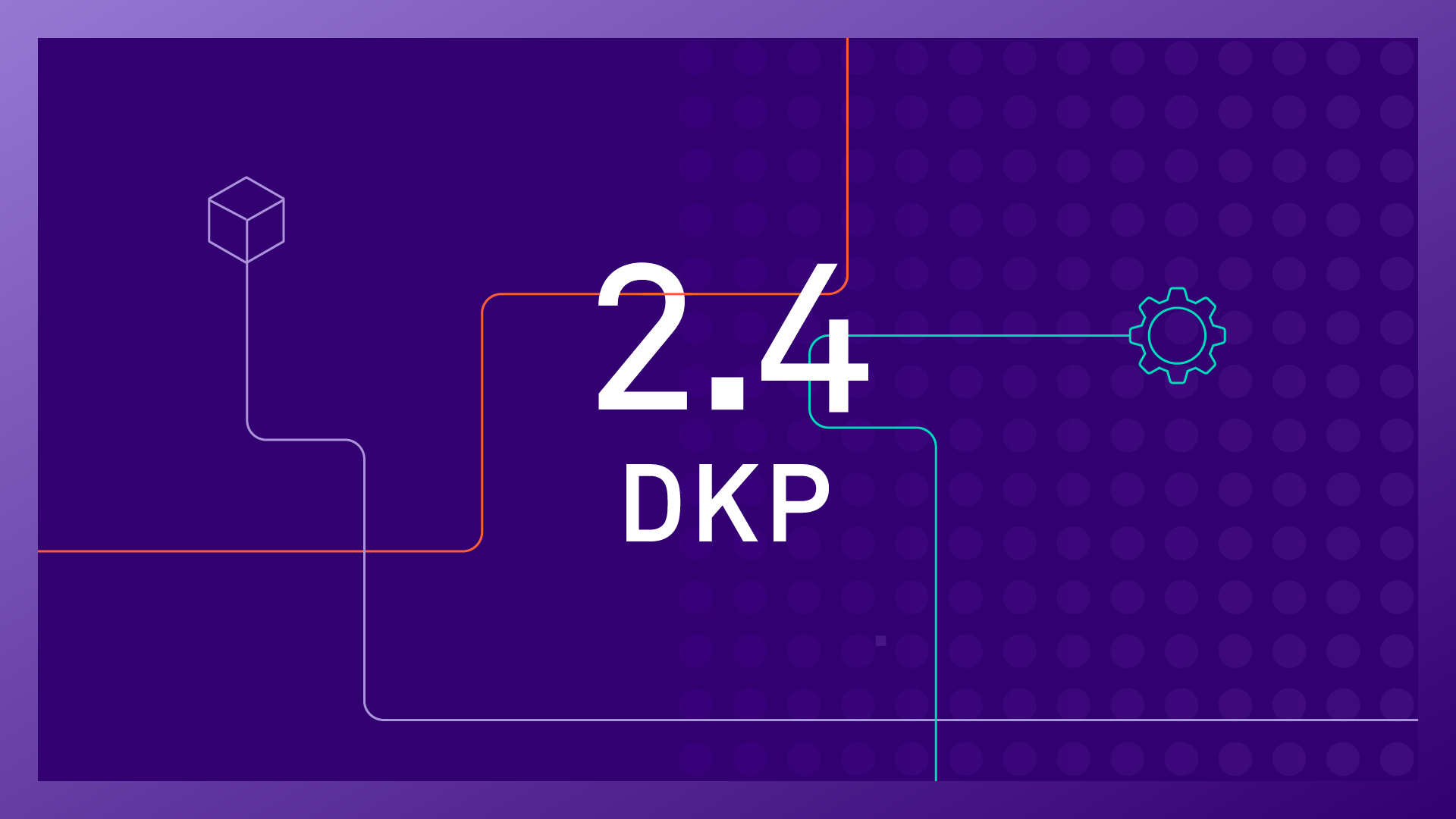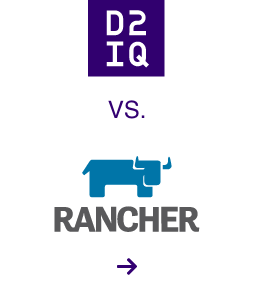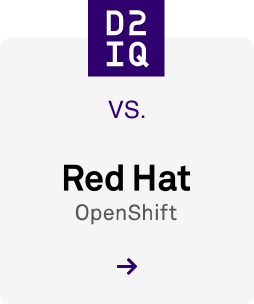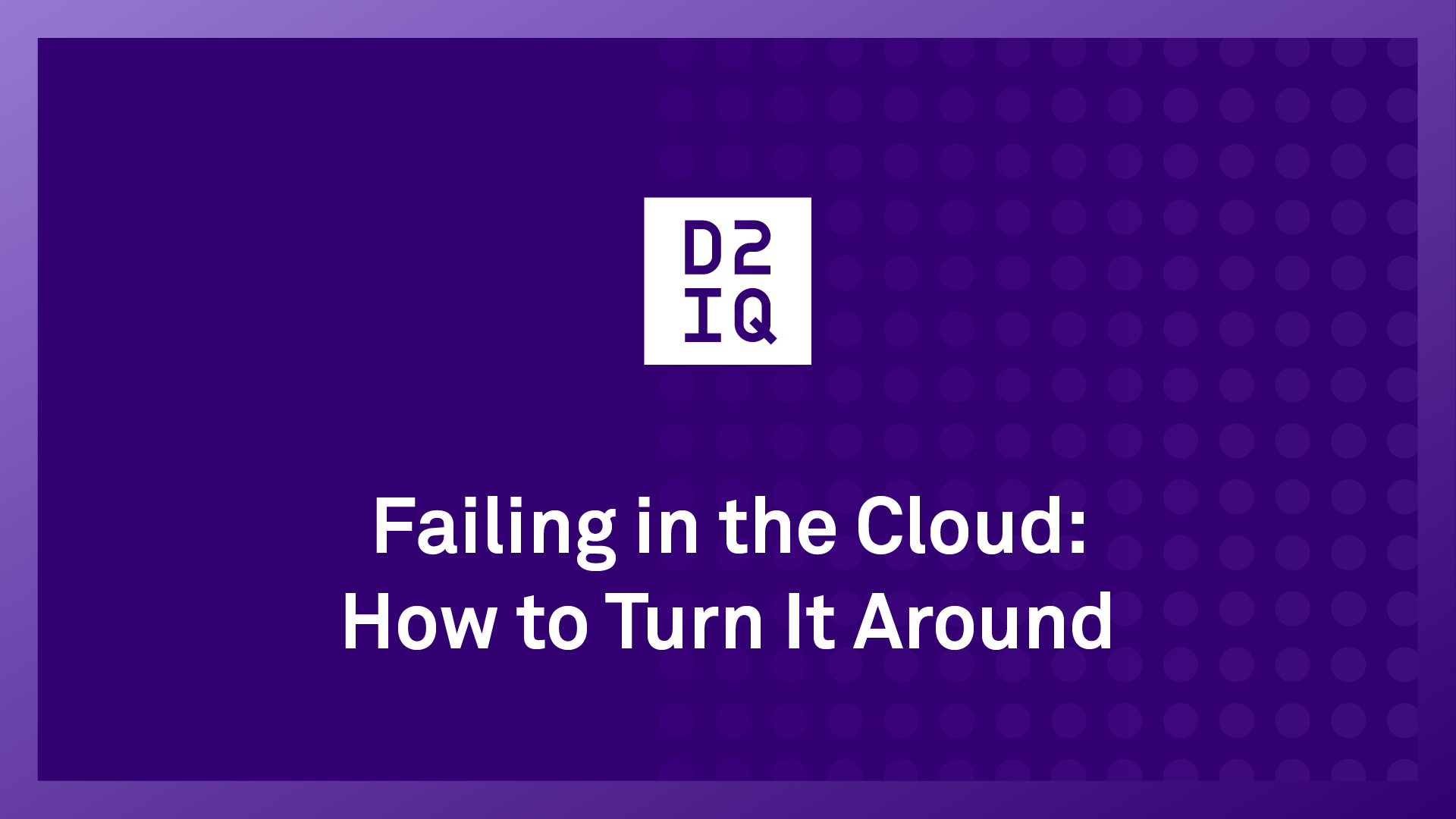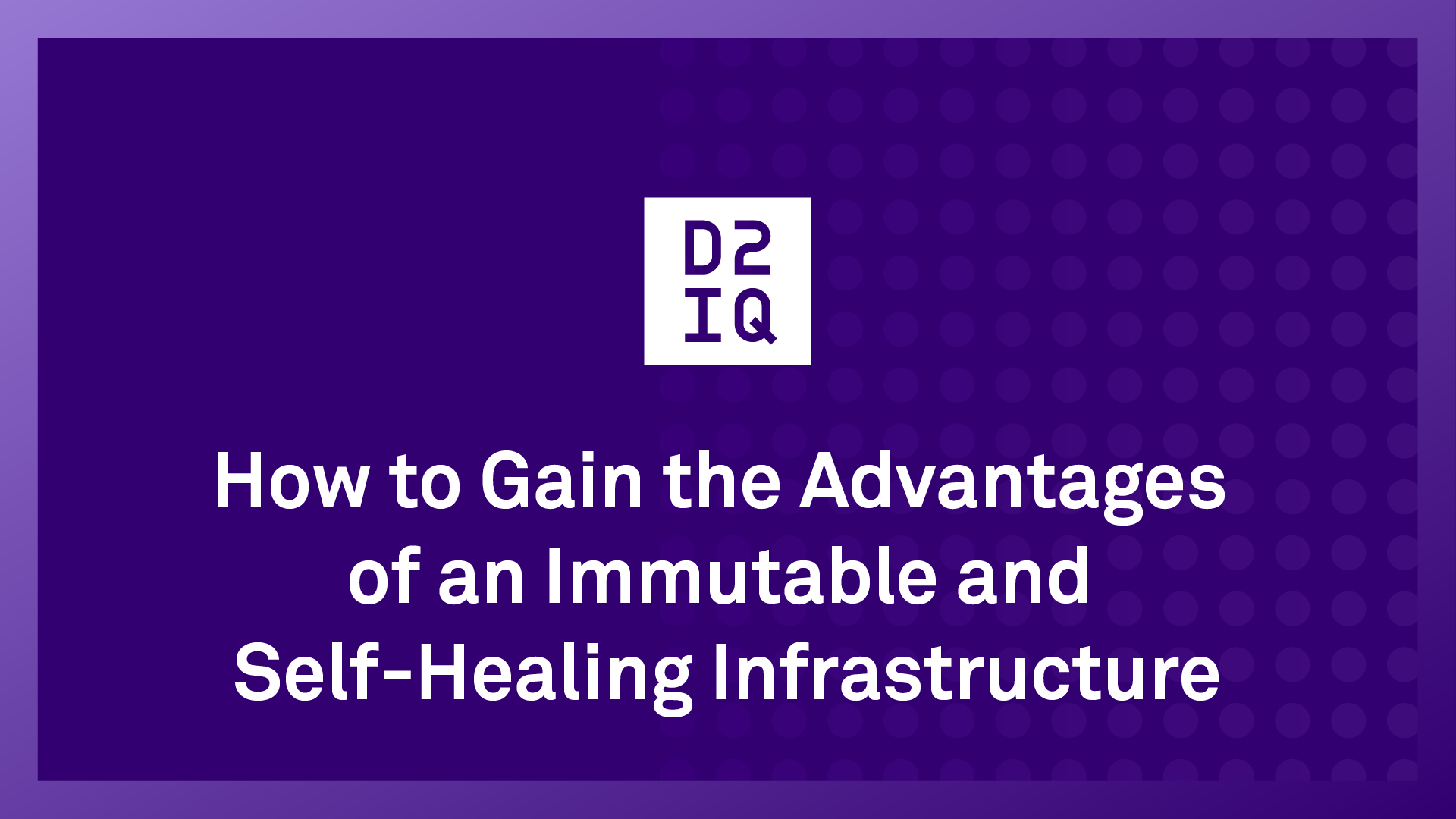With the release of the D2iQ Kubernetes Platform version 2.4 (DKP 2.4), the best Kubernetes platform just got better, particularly the ability to manage Kubernetes clusters across multi-cloud and hybrid cloud environments.
What makes DKP so special? D2iQ’s business is focused solely on creating a container management platform that is as complete and reliable as possible. To do so, D2iQ engineers take pains to create a Kubernetes platform that is based on the best design principles and open-source components.
DKP is engineered with an emphasis on reducing the complexity of deploying and managing a Kubernetes environment, which is achieved through an integrated set of automation services.
The automation services integrated within DKP are best-of-breed components that are carefully selected from within the open-source community. These services are required to make Kubernetes a production-ready platform, and include logging, monitoring, storage, networking, security, observability, cost management, cluster lifecycle management, governance, and more.
Pure Upstream Kubernetes Makes a Difference
As Gartner notes in its
Market Guide for Container Management, some Kubernetes vendors “add other components that make the entire technology stack proprietary, which often prevents portability, thus enforcing lock-in.” Because DKP is based on pure upstream Kubernetes, D2iQ customers avoid these problems while gaining a host of openness advantages, such as easier upgrades and bug fixes.
Besides portability and easier maintenance, being
based on pure upstream Kubernetes enables DKP customers to easily add innovative new services that arise within the open-source community. DKP engineers also take advantage of DKP’s openness and modular design to easily add new services to increase the platform’s power, scope, and ease of management.
Continual Improvement
If we trace DKP’s evolution, we can see a significant leap was made in version 2.0 in which top-to-bottom declarative programming and simplified cluster lifecycle management was achieved through the addition of Cluster API (CAPI) and Flux.
These advances have been extended in subsequent product releases in which multi-cloud and multi-cluster management has been further simplified and expanded across all cloud and on-premise environments, including the top three cloud service providers–Amazon Web Services, Microsoft Azure, and Google Cloud Platform.
A customer deploying Kubernetes on AWS, for example, can easily deploy and manage clusters not only running on AWS, but on Microsoft Azure, Google Cloud, and on-premise deployments as well. Clusters can be deployed from any of these services across all the other cloud services with a single click.
These capabilities give DKP customers unparalleled cluster fleet management through a centralized management console. Centralized observability and cost management also are made possible through the DKP management console.
Simplifying Multi-cloud Management
This type of centralized multi-cloud fleet management is sorely needed. As a
Nutanix survey showed, “the complexity of managing across cloud borders remains a major challenge for enterprises, with 87% agreeing that multicloud success requires simpler management across mixed-cloud infrastructures.”
The enhancements in DKP 2.4 are part of a continuum that will yield further increases in multi-cloud management capability in 2023. By deploying DKP today, customers gain instant platform engineering that not only provides a "golden path" to centralized fleet management of Kubernetes clusters across all environments, but a full-featured internal development environment (IDE) that provides integrated capabilities for
GitOps,
DevSecOps, and
FinOps.
The D2iQ engineers who develop DKP are among the most talented Kubernetes engineers in the world, and they share their expertise in the
D2iQ Engineering blog.
You can read the full DKP 2.4 press release
here.
